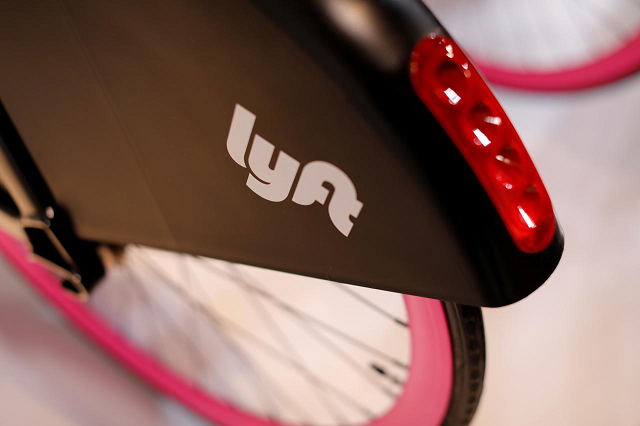Lyft app to display US ride-hail alternatives as congestion concerns mount
The San Francisco-based company, said a new version of the app would be pushed to users

A Lyft bicycle is shown at the Lyft listing on the Nasdaq during an IPO event in Los Angeles, California, US, March 29, 2019. PHOTO: REUTERS
The San Francisco-based company, which operates in over 300 cities across the United States and Canada, said a new version of the app would be pushed to users on Tuesday. Over the coming weeks, the app will not only display nearby ride-hail vehicles but also compare the cost and travel times of other transportation options.
Lyft operates bike-share services in eight cities and scooters in 20 cities, options that will be integrated into the app. The new version will also show rental car options.
Uber plans to acquire Careem for $3 billion
Detailed information on public transportation alternatives will become available early next year for Boston, Chicago, Denver, Los Angeles, New York, Seattle, and Washington, Lyft said.
Lyft and its competitor Uber have come under growing pressure as cities around the United States accuse ride-hailing companies of worsening congestion by taking riders off public transit and putting them into individual ride-hail cars.
A May study published by a group of researchers in collaboration with the city of San Francisco attributed half of the city’s increase in congestion between 2010 and 2016 to ride-hail vehicles.
New York’s Department of Transportation in 2018 found ride-hail cars to make up 30% of vehicles during peak traffic hours in Manhattan, causing the city regulator to impose a cap and other restrictions on those services.
An August study commissioned by Lyft and Uber confirmed an increase in inner-city congestion attributable to ride-hailing vehicles. It also found that on average close to half of the cars’ trips take place without a passenger in the backseat.
But the study also showed that the use of private and commercial vehicles still far outstrips the traffic caused by ride-hailing vehicles.
You can now book a Careem without internet
Lyft on Tuesday said tests of its new app design showed a significant increase of engagement and usage of bikes, scooters and public transit information.
“At Lyft, we’re working toward a future where cities are centered around people, not cars,” John Zimmer, Lyft’s co-founder, and president said in a statement, adding that the app changes will “unlock better transportation solutions” for city dwellers across the country.

















COMMENTS
Comments are moderated and generally will be posted if they are on-topic and not abusive.
For more information, please see our Comments FAQ